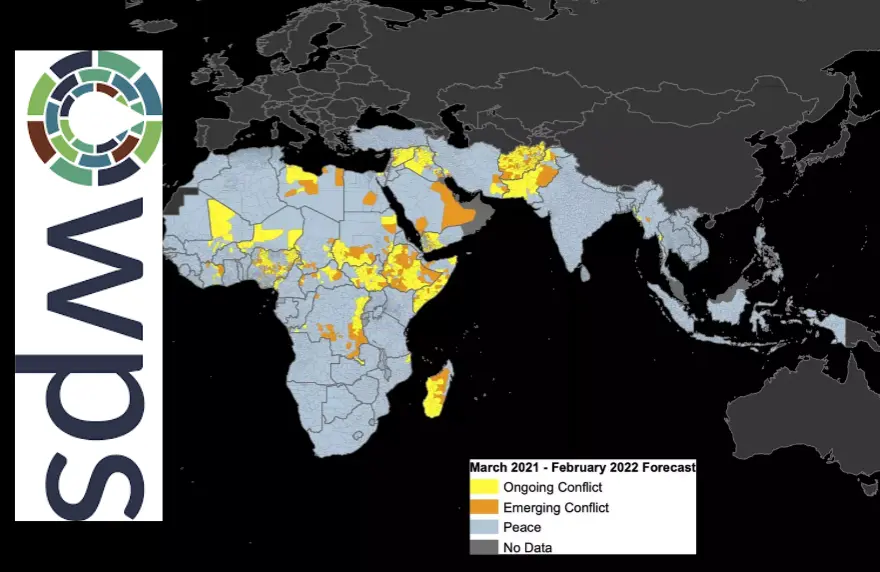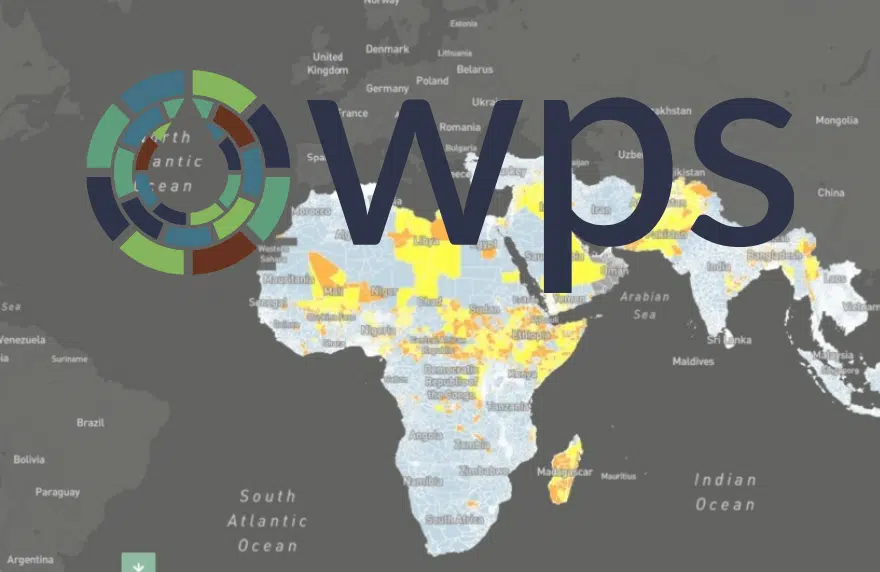Large-scale acute food insecurity sparked by drought continuing into a fourth consecutive growing season puts Kenya, Ethiopia and Somalia at risk of emerging and ongoing conflict, according to a new quarterly update that analyses findings from a global early warning tool.
The update, issued by the Water, Peace and Security (WPS) partnership, highlights that soaring food prices caused by factors such as the pandemic, poor weather and the climate crisis as well as war-related decreases of food and fertilizer exports from Ukraine and Russia, could severely worsen food insecurity among the world’s poor and lead to destabilization, conflict and migration, especially in regions where food insecurity is already rampant due to local drought situations and bad water management.
In addition to warning about conflict risk in Eastern Africa, the update also warns of ongoing conflict in South Sudan due to food insecurity caused by three years of massive floods. Areas around Durban, South Africa, where floods in mid-April 2022 killed 450 people and left thousands homeless, are also at risk of ongoing conflict, the update notes. Much of Nigeria is at risk of emerging and ongoing conflict over the next 12 months, the update states, noting that the country faces a hunger crisis with farmers and herders competing for dwindling water and productive land resources.
The tool applies machine learning to predict possible conflict up to a year in advance. The WPS partnership’s latest update, based on a May 2022 analysis and focusing on the next 12 months, also predicts ongoing or emerging conflict in Iraq, Iran, Afghanistan, Pakistan and India, among others, and notes that water-related challenges may be among the drivers of such conflict.
The tool is developed and maintained by the IHE Delft-led WPS partnership, which also includes the World Resources Institute, Deltares, The Hague Centre for Strategic Studies, Wetlands International and International Alert as well as Oregon State University and Clingendael – the Netherlands Institute of International Relations as associated partners.
The analysis predicts emerging conflict throughout most of south-eastern Ethiopia and northern Somalia over the next 12 months, and ongoing conflict for much of the rest of the drought-impacted region.
“Food insecurity is worsening in several areas around the world, with the situation being particularly severe in Kenya, Somalia and Ethiopia, parts of which face an acute food situation due to extreme droughts over the past four years,” said WPS coordinator Susanne Schmeier, IHE Delft Associate Professor in Water Law and Diplomacy.
The update notes that Iraq continues to struggle with drought and low flows in the Euphrates and Tigris rivers, with the reduced food production forcing the country to increase imports. In Iran, dams are at low capacity, affecting water and food security in Iran itself, but also in neighbouring downstream Iraq, thus also possibly worsening already tense relations between the two countries. “While transboundary cooperation is extremely important, there are a number of water-related challenges within Iraq’s borders that present an opportunity for the country to improve its water situation, and improve resilience and effectively mitigate water-related conflicts,” said WPS Iraq Engagement Lead Laura Birkman, Senior Strategic Analyst at The Hague Centre for Strategic Studies (HCSS). She continues by highlighting the pressing challenges of water pollution and water-use inefficiency, which can be addressed through promotional campaigns on sustainable water usage and polluting practices across ministries and citizens. “Increasing understanding and spreading awareness of the unintended consequences of individual actions should be prioritized, further contributing to a cooperative rather than competitive approach toward water security”. For Afghanistan, where water infrastructure has often been left unmanaged following the Taliban’s takeover, compounding the water scarcity caused by a severe drought, the tool predicts ongoing and emerging conflict.
“In the long run, this failure to manage the country’s water resources, already under immense pressure, will further deteriorate people’s lives and livelihoods. The impacts this will have on social and political stability and the Taliban regime as a whole remain to be seen,” Schmeier said.
The war in Ukraine has impacted water infrastructure and curtailed the availability of clean water, the update states, citing UNICEF data that indicates that 6 million people across Ukraine struggle to access clean drinking water.
About the Water, Peace and Security partnership
The WPS partnership was set up in 2018 to pioneer the development of innovative information tools and practical approaches that can support local and international actors who work in high-risk areas. These tools and approaches can help predict and prevent water-related security threats in a timely manner. The WPS partnership includes an expanding group of organizations supported by The Netherlands Ministry of Foreign Affairs and the German Gesellschaft fur Internationale Zusammenarbeit (GIZ).
The current partners include: IHE Delft (lead), World Resources Institute, Deltares, The Hague Centre for Strategic Studies, Wetlands International and International Alert. In addition, the consortium collaborates with a growing number of other organizations, including: its associate partners Oregon State University and Clingendael – the Netherlands Institute of International Relations.
Source: waterpeacesecurity.org



